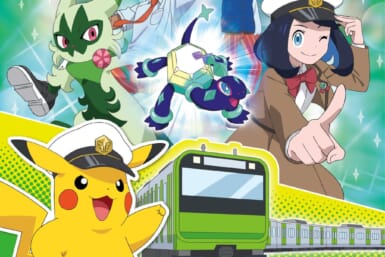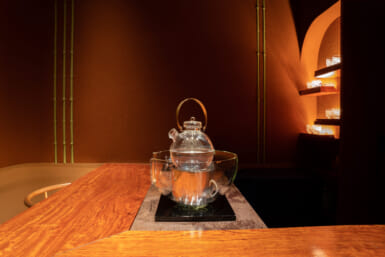One of the amazing things about Japanese people — that, quite frankly, isn’t spoken about nearly enough — is how funny we are. Japanese pop culture is always churning out new terms, many of which come from gyaru culture. Here are some of the trendiest terms you might catch on the streets of Tokyo, so now you can be in-the-know and one of the cool kids.
Egui
You’ve probably heard of the colloquial yabai, which can mean anything from “amazing” to “awful,” but now get to know egui, yabai’s younger, cooler sibling. The term originates from the word egumi, a noun to express the bitterness of spinach or other leafy greens. Then, Gen Zers made it an adjective, took it and ran with it; creating the term egui, which describes anything good or bad in its extreme.
Example sentence: “Oh my God, this new Charli XCX album is egui for real.”

Kusa
In Japanese, kusa translates to “grass,” but it is also equivalent to the English laugh out loud (LOL). Stay with me: when texting in Japanese, people will often write wara, meaning “laugh,” either in its kanji form (笑) or shortened as a lone “w.” If something is very funny, a texter might decide to increase the number of laughs, written as “笑笑,” “ww,” “www,” and so on. As a row develops, it starts to look like grass, or kusa. Some youngsters take this term even further, expressing something hilarious as daisogen (prairie), yama (mountain) or Amazon. Alternatively, if something isn’t funny at all, you can say kusa sae haenai, or “grass doesn’t even grow.”
Example sentence: “Yurié Collins’ new set is so kusa.”
Disuru
Disuru comes from the combination of the words “disrespect” and “suru” (to do). It’s akin to the English verb “to diss.” As such, it can be used in various tenses, with disuru being the infinitive form, disutta the past tense, disurareta as in “they dissed me,” and so on.
Example sentence: “Kendrick disutta Drake so much on his new track.”
Pien
Put simply, pien refers to the adorable, pleading face emoji that was groundbreaking when it first appeared in 2018. Pien can be used to refer to anything that makes you tear up, whether it be sad or heart-warming.
Example sentence: “No way, you got me the newest issue of TW? Pien 🥺”
Wanchan
Written in katakana, wanchan (ワンチャン) — not to be mistaken with the hiragana わんちゃん, meaning puppy — is an abbreviation of “one chance.” It’s used to signify there’s a chance of something happening and translates to “maybe” or “possibly.”
Example sentence: ”If I can get out of work, wanchan I could go to the TW launch party.”









